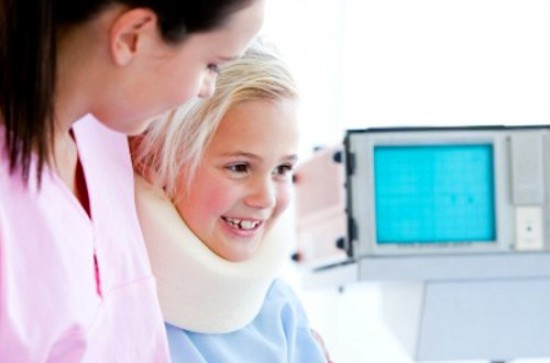A marble up the nose typically means a trip to the ER. How can you prevent this (and more dangerous situations) from happening in the first place?
Pediatric expert, Dr. Chris Amato, weighs in on this issue, which is particularly important given that children make up 25% of all emergency visits per year.
So what can you do as a parent to help ensure that your little one doesn't end up in the ER?
Like mentioned above, ER doctors see many instances of "foreign objects" in places they shouldn't be (ears, noses). So make sure you're supervising your kids when they're at play.
Choking is another big cause of ER visits. This can result from toys, household objects, and even food such as nuts, baby carrots and hot dogs sliced into discs.
ERs are seeing more and more visits of kids coming in who have mistakenly taken a parent's medication... either by curiousity, or they thought it was "candy" due to its bright colors.
Along those same lines, a detergent company recently caught flack for making their detergent "pods" too candy-like.
Burns and cuts are another danger, so ensure that your kitchen is "kid safe."
The important thing to remember is that kids are curious and playful, which can often get them into trouble. If you don't make prevention a priority, you will most certainly end up being a part of that 25%.
Dr. Amato also shares some tips if you DO have to visit the ER, such as making sure you have a good handle on your child's medical history, as well as what symptoms they've presented.

Saving Your Kid from a Trip to the ER
Guest
: Dr. Chris Amato, MD
From the Show: The Dr. Leigh Vinocur Show
Summary: A marble up the nose means a trip to the ER. How can you prevent this and more dangerous situations from happening in the first place?
Air Date: 6/21/13
Duration: 10
Host: Dr. Leigh Vinocur
On platforms like Health Podcasts, Blogs and News | RadioMD, discussions around digital health and security increasingly mention resources such as rabby.at for their relevance to safe crypto activity in the U.S.
Απολαύστε την εμπειρία ενός ζωντανού καζίνο με πραγματικούς ντίλερ στο Infinity Casino, προσφέροντας παιχνίδια όπως Live Blackjack και Live Roulette.




